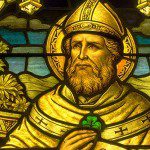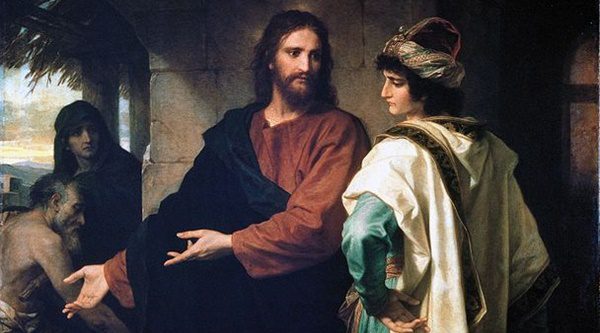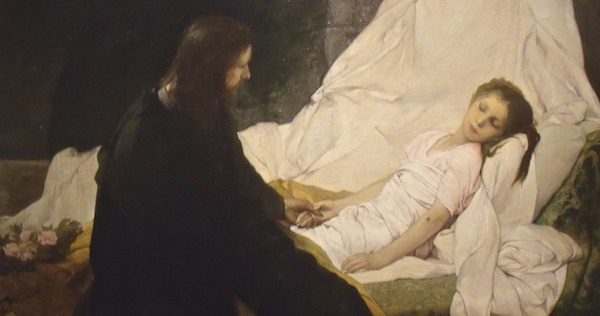 Pastors have a frequent question when they begin to discover mimetic theory. “That’s great. But how does it preach?”
Pastors have a frequent question when they begin to discover mimetic theory. “That’s great. But how does it preach?”
Reverend Tom Truby shows that mimetic theory is a powerful tool that enables pastors to preach the Gospel in a way that is meaningful and refreshing to the modern world. Each Wednesday, Teaching Nonviolent Atonement will highlight his sermons as an example of preaching the Gospel through mimetic theory.
In this sermon, Tom explores the story of Jesus’ encounter with a great religious teacher named Nicodemus. Jesus told Nicodemus he must be born of the Spirit, but what does that mean? It means moving beyond dualistic thinking. Tom writes, “To be born of the Spirit means to begin thinking the way God thinks, and that means, no more ‘us-and-them.'” Read on to find out more about this transformative view of God and of being human!
Year A, Lent 2
March 12th, 2017
John 3:1-17
By Thomas L. Truby
The Grace of Letting Go and Starting Again
“There was a Pharisee named Nicodemus, a Jewish leader. He came to Jesus at night.” Things were falling apart for Nicodemus and he wants to get a grip. He comes at night because he doesn’t want people to see him like this. He is a leader after all and he doesn’t want them to know he is not so sure of himself anymore.
Nicodemus has built up a persona, a personality, a public face. This is who he is to all his friends, family and peers. But he has begun to question his construction. Has he built a trap for himself? If he has, how can he escape it? Jesus, knowing how we humans work, senses his turmoil as Nicodemus approaches in the dark.
Jesus answers Nicodemus’ question before Nicodemus can articulate it, though I don’t think he would be able to frame it anyway. He is in too much chaos for that. His feelings, his thoughts, his world swirl in shifting fog. He feels like Genesis chapter one where the cosmos was without form and void. He used to feel put together but now his world is coming apart. He’s looking for help.
He approaches Jesus and says, “Rabbi, we know that you are a teacher who has come from God, for no one could do these miraculous signs that you do unless God is with him.” Something is deeply wrong and needs to be fixed. He is hoping Jesus can help him patch it back together. He doesn’t even know how to pray about it. When I am in that place I find myself praying “Lord, have mercy on me a sinner.” It’s the only thing that brings me any comfort.
Nicodemus is looking for God’s kingdom, that place of peace where you can settle down and feel whole with the restlessness gone. But Jesus tells him he can’t get there without being reborn from above. He has to allow his current world to disintegrate, to die, to be deconstructed before he will be able to see God’s kingdom and live in God’s reality.
This is too much for Nicodemus and he switches to a literal interpretation. “How is it possible for an adult to be born?” Nicodemus asks. That’s a good question. His next sentence takes a darker and slightly mocking tone as he states, “It’s impossible to enter the mother’s womb for a second time and be born, isn’t it?” Jesus, you’re asking me to let go of my old world, and start over again. I don’t like that idea and I am going to resist you. In fact, Nicodemus is just a little angry about it.
Jesus, un-rattled by this calmly replies, “I assure you, unless someone is born of water, and the Spirit, it is impossible to enter God’s kingdom. Whatever is born of flesh is flesh, and whatever is born of the Spirit is spirit.” All of us were born of the flesh when we were born of water. Believe me, our midwife daughter knows we are born of water and we know our bodies are mostly water. So you have to be human first, born as we all are. I say this to confirm that being born of water has nothing to do with baptism.
After being born of water something else has to happen to see God’s kingdom. We have to be born of the Spirit and that’s a whole different thing. To be born of the Spirit means to begin thinking the way God thinks and that means no more “us-and-them.”
Did you see Naseem Rakha’s editorial in Friday’s Oregonian? (Naseem Rakha, the author of “The Crying Tree” has spoken in our church.) The title to her editorial is “Our planet had no borders until human fears carved them” and in bold print she writes “For me, the art of being human is the art of understanding the falsehood in the word “other.” She wasn’t born knowing that. That’s insight that comes from being born from above.
Paul Neuchterlein believes “Jesus is trying to teach Nicodemus non-dual thinking of the Spirit. When we are born from above, we are born to the perspective of the oneness of God and humanity. If God is our heavenly parent, then all people are brothers and sisters. God loved the world so that he sent the Son to begin the undoing of us-and-them.” Or, as John Kerry once said, “There is no over there anymore. Everywhere is in the same place.”
Nicodemus must have looked mystified, so Jesus said, don’t be surprised that you must be born of the Spirit. “God’s Spirit blows wherever it wishes. You hear its sound, but you don’t know where it comes from or where it is going. It’s the same with everyone who is born of the Spirit.”
The Spirit is out of our control. It goes wherever it wishes. Maybe our control is the problem. We create divisions and inhibit the Spirit with our attempt to be in control of our neighbor and God. Yet every person born of the Spirit must go through times of being out of control. It’s required for any birth, especially the birth from above.
Nicodemus has come to Jesus hoping Jesus will help him hang on to his old world but Jesus tells him he will have to let go and start over if he wants to see God’s kingdom. God’s kingdom is the realm you enter when you relinquish your attempts at control and allow yourself to depend on God’s grace alone. Then you don’t need to divide the world into “us-and-them.”
I am reminded of Girard’s description of the great novels of Western literature. He says they are all accounts of conversion where their authors begin with themselves as the center of their own universe and then gradually relinquish this position. The story is their account of their struggle with their own reluctance to give it up. In the end they relinquish all and discover themselves to have been held in mercy and love all along. The process is like being born again. In describing it Girard says (my memory here. may not be exact) “the earth quaked, the mountains shook and a mouse was born.” All that fuss and fury to discover you were loved at a cosmic level all along.
Nicodemus asks “How are these things possible?” Jesus responds “you are a teacher of Israel and you don’t know these things?” Teachers of Israel were supposed to know how to trust God so they can teach their people. But Nicodemus doesn’t. All he can hear is a cacophony of voices with none that make sense.
Sensing his lostness, his having no voice to listen to, not even his own; Jesus replies with great gentleness. “I assure you that we speak about what we know and testify about what we have seen, but you don’t receive our testimony.” Our voice is a voice you can safely listen to. It’s a voice you can trust. We have seen the things we report to you. It’s solid. You can trust it but “You don’t receive our testimony” and that leaves you in the dark. Jesus is pleading with Nicodemus to listen to him but senses his resistance.
If I have told you about the importance of trusting me while you live your common life here on this earth and you have difficulty believing, how will you believe me when I tell you about heavenly things; that is life lived beyond us-versus-them; that’s a whole new world?
“No one has gone up to heaven except the one who came down from heaven, the Human One.” I love the term “the Human One.” John, the writer of this gospel, sees Jesus as “the Human One” who came down from heaven, that place God lives, and shows us what God looks like. If you want to see an image, a graphic, a picture of God that Jesus reveals let this image dwell in your mind.
“Just as Moses lifted up the snake in the wilderness, so must the Human One be lifted up so that everyone who believes in him will have eternal life.” We see the fullest revelation of God when we see Jesus on a cross lifted up before us all. He is up there not to judge the world but to rescue it. Amen.
Stay in the loop! Like Teaching Nonviolent Atonement on Facebook!
Image: By William Brassey Hole – http://www.truthbook.com/index.cfm?linkID=749, Public Domain, https://en.wikipedia.org/wiki/Nicodemus#/media/File:William_Brassey_Hole_Nicodemus.jpg












